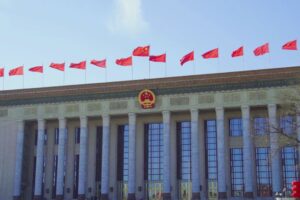
This Tuesday, the XVI BRICS Summit began in Kazan, Russia, a key event on the international stage, in which the leaders of the group of emerging countries meet to discuss crucial issues that could redefine the global geopolitical and economic balance. The summit, which has as its motto “Strengthening multilateralism for equitable global development and security,” brings together representatives from 32 countries, including the ten members of the BRICS bloc.
Russian President Vladimir Putin, host of the meeting, has planned a series of bilateral meetings throughout the week. On the first day, his meeting with the president of China, Xi Jinping, and the Indian prime minister, Narendra Modi, two of the most influential actors within the group, stands out. Formal talks will begin on Wednesday, where the Russian president is also expected to speak with leaders such as Iranian President Masoud Pezeshkian and Turkish President Recep Tayyip Erdogan. This Thursday, at the close of the summit, Putin will also hold meetings with the UN Secretary General, António Guterres, addressing global issues such as the crisis in the Middle East and the situation in Ukraine.
This year’s summit has a special character due to the international context in which it takes place. The BRICS, originally formed by Brazil, Russia, India, China and South Africa, has expanded its borders in 2024 with the inclusion of new members such as Egypt, Iran, the United Arab Emirates, Saudi Arabia and Ethiopia. This growth underlines the attractiveness of the bloc and its potential as an alternative to the Western-dominated system of economic and political power.
According to experts consulted by Sputnik, one of the main challenges of this summit will be to define the mechanisms that will allow progress in the de-dollarization of the global economy, a strategy considered key to consolidating a new multipolar order. The trend towards a world less dependent on the dollar and the Western financial system has been a central theme in BRICS discussions in recent years. This summit could mark a turning point in the creation of new commercial and financial routes independent of traditional structures.
The BRICS bloc, which represents more than 40% of the world’s population and more than 37% of global GDP, has enormous potential for transformation. As emerging economies seek to break economic dependence on the West, the group presents itself as a key player in redefining the rules of the game in international trade and global financial policy.
During the summit, it is expected that not only the expansion of the group will be discussed, but also the strategy to strengthen its role as a counterweight to the traditional powers grouped in the G7, made up of Germany, Canada, the United States, France, Italy, Japan. and the United Kingdom. According to Wilmer Depablos, a Venezuelan international analyst, the BRICS have already begun to challenge the hegemony of the G7 and the unipolar system based on the dollar and mechanisms such as the SWIFT payment system. Speaking to Sputnik, Depablos stated that by 2028, the BRICS could consolidate as a dominant bloc, leaving the G7 behind and establishing the foundations of a multipolar world.
Strengthen BRICS for a unified world
The expansion of the BRICS, added to geopolitical tensions and growing instability in the West, reinforces the perception that the world is at a “hinge moment,” according to Argentine analyst Sebastián Schulz. In this sense, the crisis of North American hegemony, evidenced by its diminished capacity to influence emerging countries and provide global public goods, is seen as an opportunity for the BRICS to fill that void and offer a more inclusive and equitable alternative in the scenario. international.
The bloc has proven to be a flexible space that welcomes economies with different political and economic realities, but united by the common objective of strengthening multilateralism and reducing dependence on the Western financial system. The BRICS have made progress in creating mechanisms such as the New Development Bank (NBD), chaired by the former president of Brazil, Dilma Rousseff, and which seeks to finance projects in developing countries without the restrictive conditions imposed by institutions such as the IMF or the World Bank. Rousseff’s presence in Kazan underlines the importance of the NDB as a key tool for the sustainable growth of the BRICS countries and their allies.
However, the summit will not be without challenges. The president of Brazil, Luiz Inácio Lula da Silva, founder of the bloc, canceled his attendance for health reasons, leaving Luis Arce of Bolivia as the only Latin American representative. Lula’s absence could influence discussions about Latin America, a region that has shown interest in integrating more closely with the BRICS, especially in terms of economic and political cooperation.
In terms of geopolitics, the BRICS are consolidating themselves as an emerging force that seeks to reconfigure the rules of the international order, promoting a more balanced world with a focus on equitable development. The summit in Kazan could lay the foundations for a future where emerging powers have a more predominant role, challenging the unipolar structure that has dominated the global scene for decades.
With more countries seeking to join the BRICS and the push for new economic and financial initiatives, this summit marks a crucial milestone in the bloc’s evolution. The ability of the BRICS to advance their agenda of multilateralism and de-dollarization could redefine the course of global development in the coming years.
Source: https://reporteasia.com/relaciones-diplomaticas/2024/10/22/cumbre-brics-arranca-rusia/

